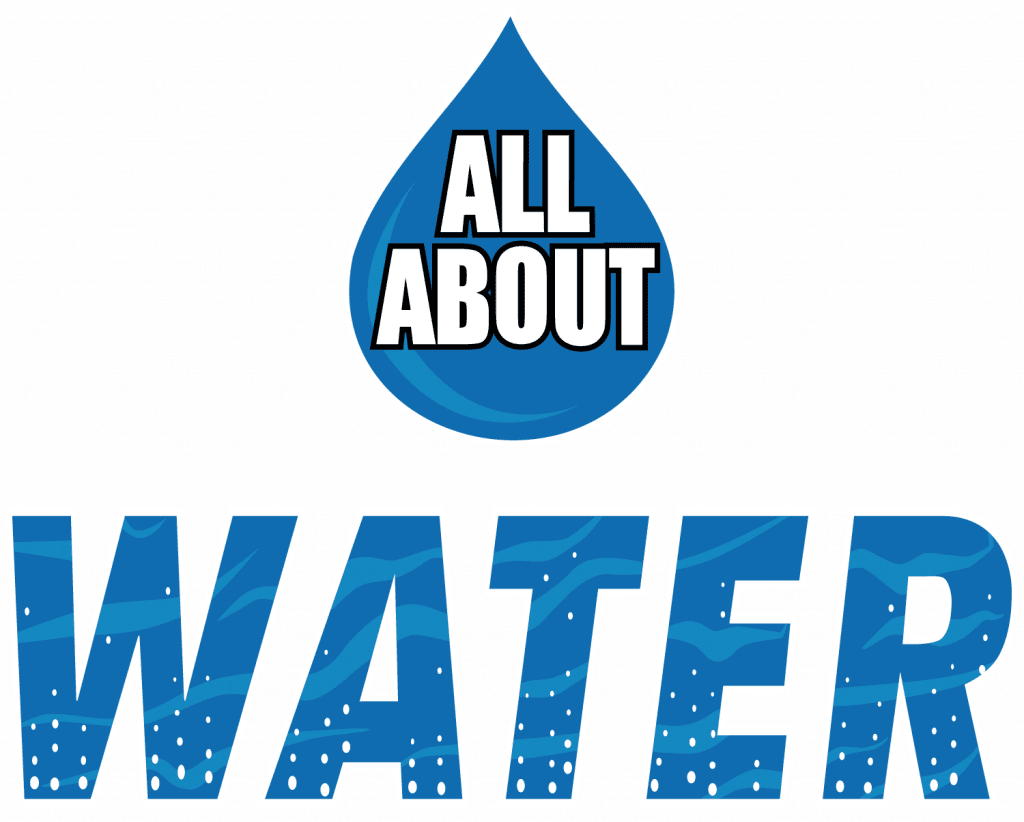Enjoy your water with a complete home water filtration system.
A water filtration system is a great way to ensure that your family has access to clean, safe water. Not only does it get rid of harmful contaminants, but it also often improves the taste and smell of the water. A complete home filtration system can provide you with everything you need to keep your water useful for all purposes.
Water Source
City Water (or) Well Water
Water from the city is heavily chlorinated and well water is full of bad minerals.

System 1
Whole House Filter
Install a basic carbon filter for city water and/or a sediment filter for wells.
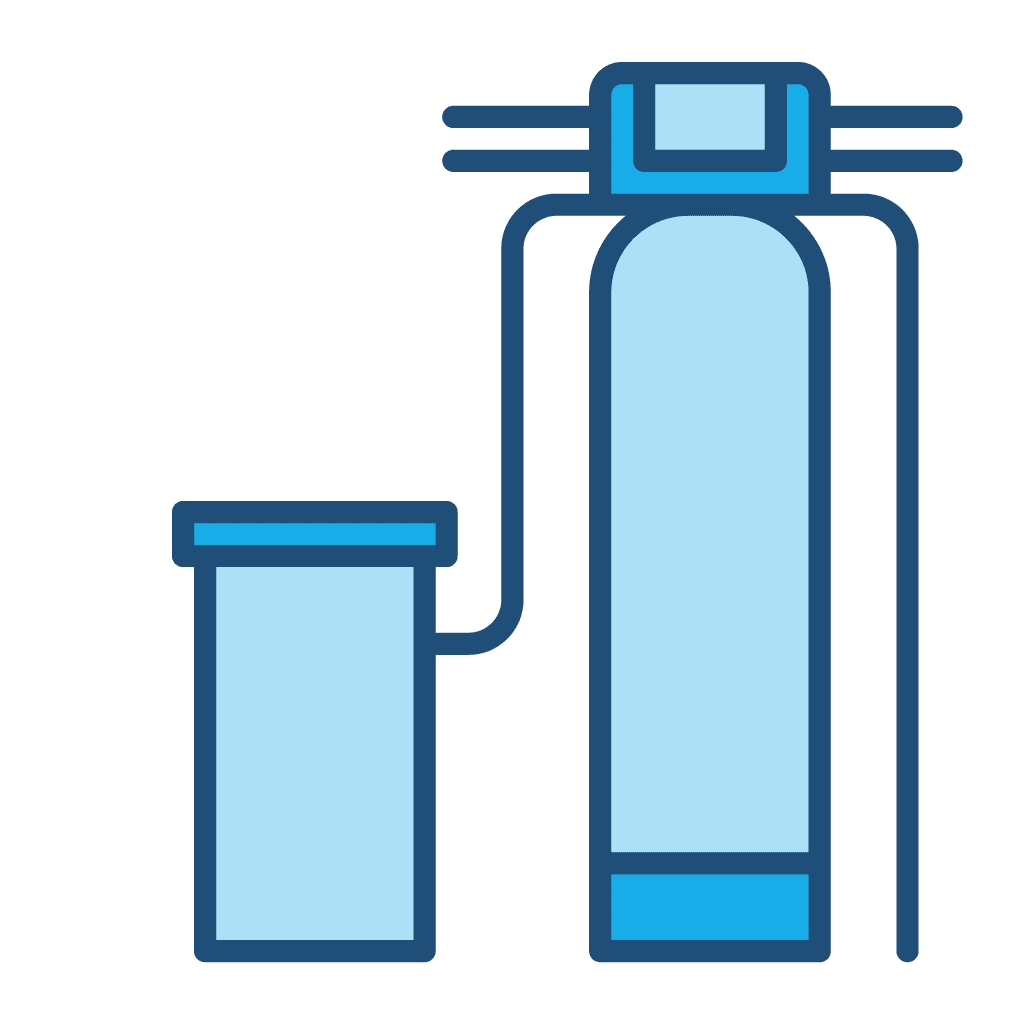
System 2
Water Softener
The hardness of your water depends on location, but a softener is crucial.
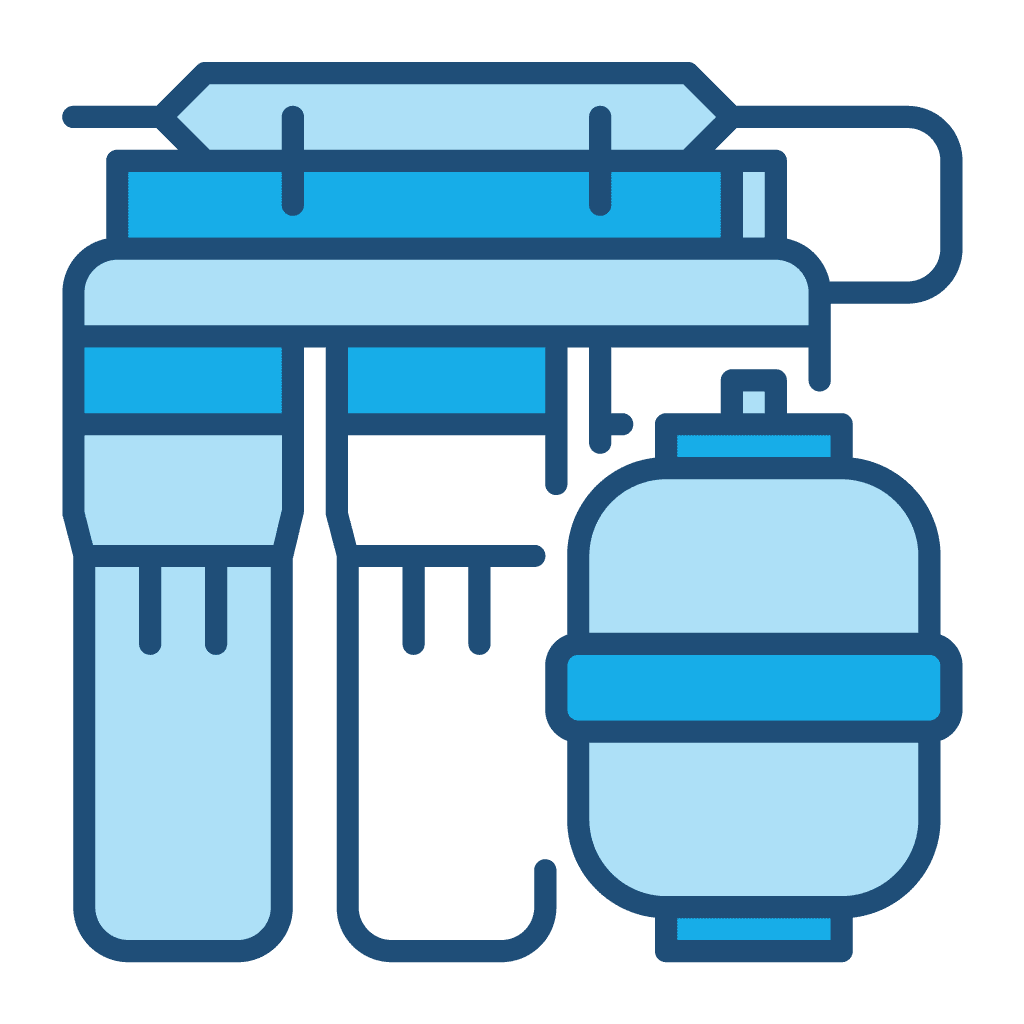
System 3
Reverse Osmosis
Use an RO system to remove all other impurities in consumable water.
How do you get the best water quality for your whole house?
People are often misled when it comes to improving their home’s water quality. This isn’t accomplished by a single system. In reality, there are three different systems that should work together to make your water the best it can be.
Whether you want better water for cleaning or cooking, All About Water can provide you with all the systems you need to enjoy safe, clean water throughout your entire home.
These three systems work together to form a comprehensive filtration solution for your entire home. A whole house carbon filter will remove contaminants from every tap in your home, while a water softener will remove hard minerals that can damage your plumbing and appliances. A reverse osmosis filter is the best way to remove even the smallest contaminants, including viruses, which makes the water perfect for consumption.
Water Filters
In most areas of Idaho some type of filtering is necessary to save our hair, skin…appliances and fixtures from the negative effects of chemically treated and hard water.
You don’t have to live with….
- Water that smells
- Water that stains your fixtures
- Water that ruins your pipes
- Water that eats up water heaters and dries out your skin & hair
Sediment filtering: removes turbidity (sand, sediment)
Basic filtering: string wound, “glass blown” or pleated paper.
Carbon filtering: removes or reduce many toxic chemicals like Benzene, Chloramines, Chlorine, Pesticides and others.
Different types of “Carbon” will be used for specific contaminants. Not all carbon filtering is the same. There are many types and quality levels of carbon filtering.
Granular Activated Carbon (GAC)
The easiest and cheapest to use and is why most refrigerator filters and shower filters use this type of carbon. The downside of this carbon is its poor longevity, quality of filtering and retaining contaminates. The high price of refrigerator filters is more in the packaging and dispensing design, rather than the quality of filtering. Your standard shower filters use only cheap carbon and carbon alone does not work well with hot water… get ready for a cold shower!
Solid Carbon Block
One of the most effective carbon styles and comes in different micron filtering sizes for different filtering needs. Flow rates will have to be considered when using this type of carbon.
KDF Media
Used in better quality water filtering systems. KDF is a filtering media made of high-purity alloy; copper & zinc; know to kill algae fungi and to control bacteria. This alloy combination is also best in removing chlorine, pesticides, heavy metals and many other organic compounds.
Are you only interested in a whole house filter?
Understanding Water Softeners
Most city and county water supplies are treated with a combination of chemicals. These chemicals along with the hardness (calcium, magnesium and turbidities) can cause dry, irritated skin and hair, some people are more affected than others. The hardness in ground water (wells and aquifers) create a corrosive build up that will be noticed on dishes, shower doors, faucet outlets and toilet bowels.
The most damaging and costly affects of hard water can show up in our dishwashers, washing machines and water heaters. Appliances that don’t use some form of conditioned water as their water supply source will experience a shorter life. This is due to their pumps, motors and heating elements having to work much harder because of the hard water build up. Water heater elements, burners and tanks, can also experience shortened life, as they have to heat the water much longer and hotter through the hardness build up.
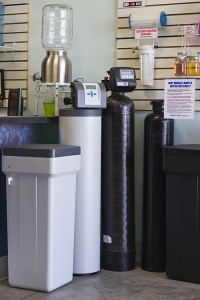
Water Softeners
Remove hard water and small amounts of other foreign substances via “ion exchange”. At this time, there are NO devices on the market that change hard water to soft water other than ion exchange.
Anti-Scaling Devices
They are not water softeners. Anti-scaling devices just keep small amounts of hard water scale from sticking to areas of the water flow surfaces.
Non-Salt Systems
This type of system does not soften the water, but attempts to trap the contaminants and hard water until they “foul” and have to be serviced or replaced.
How effective “Anti-Scale” or “Non Salt” systems are, greatly depends on the quality of the water that goes through it. Generally speaking, these systems don’t work well with hardness over 3 gpg (grains per gallon) hard or with higher TDS (Total Dissolved Solids). Natural occurring substances like calcium, magnesium, manganese (black oxide), iron and iron bacteria slime (to name a few of the local foreign substances) will foul the “Non Salt” and “Non Resin” systems in a short time.
Water softeners come in many styles, filtering quality and water/salt use efficiency. You can pay too little and you can pay way too much!
Even a low-end softener will soften your water to some degree. The questions are: how long will it last? Who can repair it when it fails? What will it cost? How much salt and water does it use? And how often does hard water break through?
A higher-end unit will typically be more efficient by saving water and salt due to better design and technology that allows the most effective re-generation cycles.
Are you only interested in a water softener?
Reverse Osmosis Systems (RO)
What is the correct filtering choice to improve your water?
Remember, all the units we have talked about so far only remove hardness and in exchange we get softer water. Very few other contaminants are removed with just a softener. Softeners alone don’t make the water any safer to cook with or drink. Don’t be fooled by paying too much for just a softener. Get an RO System if you’re concerned about the impurities in the water you’re consuming.
A good RO System has at least 4-5 stages including the RO membrane. This type of filtering removes approx. 90-98% of most contaminants. In order for an RO system to be efficient and have some longevity, it should have a potable soft water feed, in areas with water harder then 7 grain. RO systems work by pre filtering feed water through a series of sediment and carbon elements and depending on the quality of the feed water, other elements can be used before it gets to the RO membrane. The RO Membrane is the most expensive and most effective part of the system, filtering and rejecting substances as small as .0005 microns. If someone was to drink their tap water that is post “soft water system”, especially post “bargain softener”… there would be residual salt and the RO system would be the best in removing salt. No other (above mentioned filtering) would be adequate.
Other specific foreign substances in Idaho’s water that cause havoc in our homes are:
- Ferrous and Ferric Iron = yellow or rust color on porcelain
- Manganese = blackish stains on fixtures and laundry
- Hydrogen Sulfide = rotten egg smell in water
- Tannins = yellow or brown cast In water supply
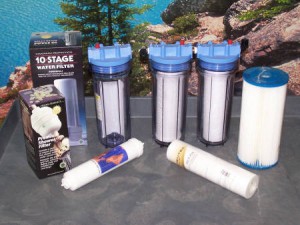
Are you only interested in a reverse osmosis system?
Are you ready to start living with better water?
It’s better to use filters instead of your body to remove the bad stuff from your water.
We’ll get you the right filtration systems.
When it comes to water filtration systems, there are a lot of options. Our experts will help you get the right systems at the best price – including local delivery & installation!
Use the form below to get started… or, give us a call by clicking the button at the top of the page.

